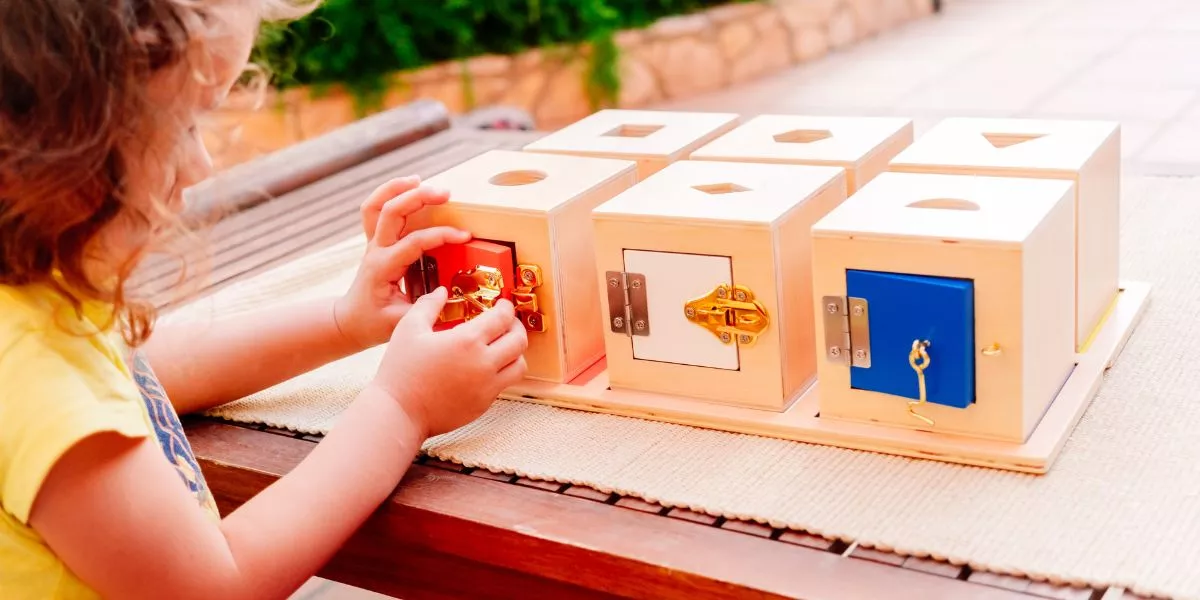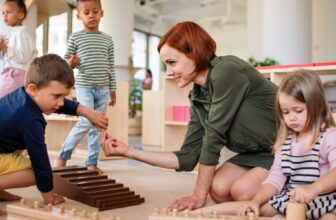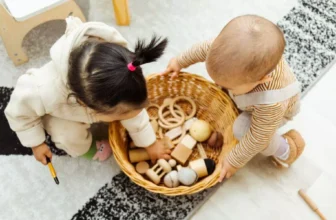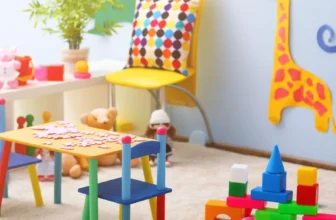
In Montessori education, sensory play serves as a fundamental pillar for fostering comprehensive development in children. By engaging in tactile, visual, olfactory, gustatory, and auditory experiences, young learners embark on a journey that intertwines cognitive growth with social and emotional well-being. These hands-on activities not only stimulate the senses but also lay the groundwork for robust problem-solving capabilities and enhanced memory retention. As you explore further, you will uncover the intricate connections between sensory engagement and the multifaceted advancements it brings to a child's educational journey.
Cognitive Development Benefits
Sensory play in Montessori education enhances cognitive development through engaging hands-on activities that stimulate various senses simultaneously. When you engage in sensory play, you aren't only exploring different textures, smells, and sounds but also building essential cognitive skills.
By manipulating materials like sand, water, or clay, you're honing your problem-solving abilities as you experiment with cause and effect. Your brain is actively processing information as you observe, touch, and listen, which strengthens your memory and comprehension.
Through sensory play, you're also refining your fine motor skills by grasping, pouring, and sorting various objects, laying a solid foundation for tasks like writing and dressing yourself independently later on.
Additionally, as you engage in sensory activities with peers, you're developing important social skills like sharing, taking turns, and collaborating, setting the stage for successful interactions in future group settings.
Social Interaction Opportunities
Engaging in sensory play activities in a Montessori setting provides you with valuable opportunities for social interaction and collaboration with your peers. Through sensory play, you can engage in shared experiences, such as building structures with sensory materials or exploring different textures together.
These interactions foster communication skills as you describe what you're doing, negotiate roles, and problem-solve collaboratively.
Moreover, sensory play in a Montessori environment encourages turn-taking and sharing, essential skills for successful social interactions. As you engage in sensory activities with others, you learn to respect each other's space and ideas, promoting empathy and cooperation.
These experiences help you develop a sense of belonging within a community of learners, where everyone's contributions are valued.
Emotional Regulation Skills
Developing emotional regulation skills through sensory play in a Montessori environment is a key aspect that enhances your ability to manage and express your feelings effectively. Engaging in sensory activities like playing with different textures, scents, and sounds allows you to explore various emotions in a safe and controlled setting. By experiencing these sensations, you learn to recognize and understand your feelings, leading to improved emotional self-awareness.
Sensory play also provides a platform for practicing coping strategies when faced with challenging situations or overwhelming emotions. Through activities that involve deep pressure, swinging, or calming scents, you can learn how to calm yourself down and regain emotional balance. These skills are crucial for navigating everyday stressors and developing resilience in the face of adversity.
Moreover, sensory play fosters empathy and understanding towards others' emotions. By engaging in shared sensory experiences, you learn to appreciate different perspectives and respond empathetically to others' feelings. This cultivates a supportive and emotionally intelligent community within the Montessori environment.
Physical Coordination Enhancement
Enhancing your physical coordination skills is a fundamental aspect of Montessori education that promotes overall development and motor skills proficiency. Through hands-on activities like pouring, grasping, and threading beads, you're honing your fine and gross motor skills. These activities require a combination of precise movements and hand-eye coordination, helping you develop control and dexterity in your actions.
As you engage in sensory play, such as scooping rice or molding clay, you're refining your sense of touch and proprioception, which is your body's awareness of its position in space. These experiences stimulate various sensory receptors in your muscles and joints, enhancing your spatial awareness and balance.
Furthermore, physical coordination enhancement in Montessori education extends beyond the hands-on activities. Movement-based exercises like walking on a line or carrying objects across the room challenge your coordination and balance, fostering better control over your body movements. By consistently practicing these activities, you aren't only improving your physical coordination but also laying a foundation for refined motor skills and overall physical development.




